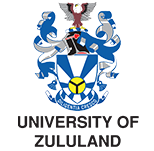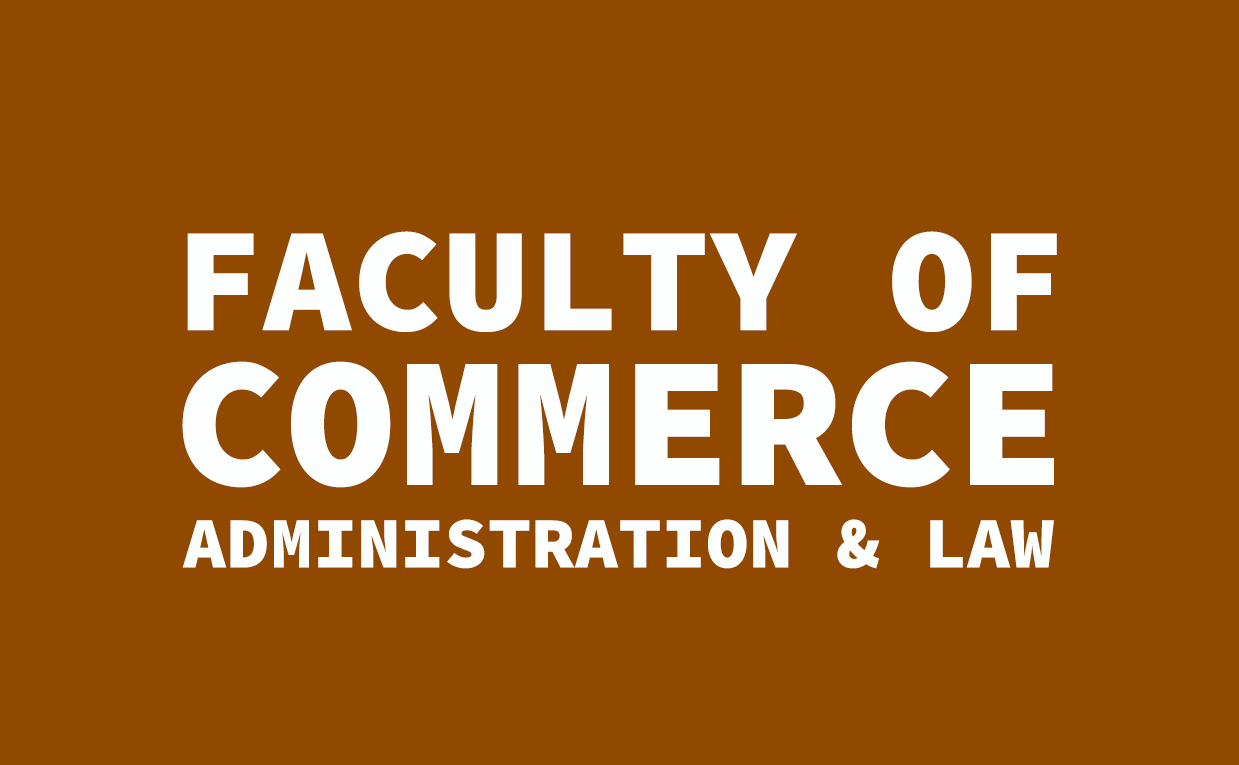Welcome to the Faculty of Commerce, Administration and Law
Richards Bay Campus
The Faculty of Commerce, Administration and Law (FCAL) is transforming into a vibrant and dynamic Faculty at the University of Zululand. The University is restructured for relevance and advocates a career-focused education with emphasis on meeting the needs of its rural environment, as well as its commitment to commerce and industry. The Faculty comprises the Office of the Dean, a Faculty Office and five academic departments, viz, Department of Accounting (including Information Technology), Department of Business Management (incorporating Human Resources Management), Department of Economics (Incorporating B Com 4-Year extended degree), Department of Public Administration and Department of Law (incorporating the Center for Legal Services)
DEPARTMENT OF CO-OPERATIVES
Co-ordinator
Ms T I Maseko
Tel: 035 902 6886
BCom, BComHons, MCom (Business Management) PGCE(UNIZULU)
Lecturers
Dr M F Magigaba, BA(Hons), MBA (JSU, USA) DCom (UNIZULU)
Ms H C Zwane, PGCE, B.Com, B.Com (Hons)(UNIZULU)
Mr S G Ndlovu, B.Com, B.Com (Hons), MCom (UNIZULU)
Mr L O Mpungose, BCom, BCom(Hon)(UNIZULU)
Dr H Maduku, BCom Honors Economics (Midlands State University, Zimbabwe), MCom Economics, DCom Economics, (UNIZULU)
Mr L T Zungu, BAdm, BCom(Hons), BAdmin., MA Economics(UNIZULU),
Ms T N Radebe, BCom, Hons (Business Management), MCom (Business Management)(UNIZULU),
Ms N S Zikhali, NHC Marketing, BCom, BCom (Hons) & MCom (UNIZULU)
Mr B N Mthethwa, BAdmin, BAdmin (Hons), MPA(UNIZULU)
2CODP1/CCODP1
Diploma in Management of Co-Operatives
This programme is one of the first accredited academic diplomas in this field. It aims to equip students with skills and knowledge that will qualify them for employment as managers and supervisors of small and medium co-operatives. Graduates will be able to manage the operations of co-operative organisations, mobilise resources from members of co-operatives for growth and wealth generation. Graduates will also acquire broad-based business management skills. Employment opportunities can be in any of the following positions: co-operative manager, co-operative training and educational specialist, co-operative promoters/advisor, co-operative auditor, credit officer for micro-financing or project development officer with a non-governmental organisation (NGO).
FACULTY | Commerce, Administration and Law |
DEPARTMENT | Business Management |
QUALIFIER | Diploma in Management of Co-Operatives |
MAJORS | Business Management 1 and 2 for Co-Operatives; Co-Operatives Organisation and Management Practice 1 and 2 |
UNIZULU Code | 2CODP1/CCODP1 |
SAQA ID | 84126 |
NQF EXIT Level | 6 |
Presentation mode of subjects: | Day classes |
Intake for the qualification: | January |
Registration cycle for the subjects: | January |
Total credits to graduate: | 360 |
FIRST YEAR
SUBJECT NAME | OLD SUBJECT CODE | NEW SUBJECT CODE | SUBJECT CREDITS | NQF LEVEL | PRE-REQUISITE SUBJECT(S) |
SEMESTER 1 |
|
|
|
|
|
History and Principles of Co-Operatives | CCDH111 | 2CDH111 | 15 | 5 | None |
Business Calculations for Co-Operatives | CCDC111 | 2CDC111 | 15 | 5 | None |
Business Information Systems for Co-Operatives | CCDI111 | 2CDI111 | 15 | 5 | None |
Business Communication for Co-Operatives | CCDD111 | 2CDD111 | 15 | 5 | None |
SEMESTER 2 |
|
|
|
|
|
Management of Savings and Credit Co-Operatives | CCDM112 | 2CDM112 | 15 | 5 | None |
Accounting 1A for Co-Operatives | CCDA112 | 2CDA112 | 15 | 5 | None |
Business Management 1 for Co-Operatives | CCDB112 | 2CDB112 | 15 | 5 | None |
Co-Op Organization and Management Practice | CCDO112 | 2CDO112 | 15 | 5 | None |
TOTAL |
|
| 120 |
|
|
SECOND YEAR
SUBJECT NAME | OLD SUBJECT CODE | NEW SUBJECT CODE | SUBJECT CREDITS | NQF LEVEL | PRE-REQUISITE SUBJECT(S) |
SEMESTER 1 |
|
|
|
|
|
Co-Operatives Policy, Law & Regulations | CCDP211 | 2CDP211 | 15 | 5 | CCDA112/2CDM112 |
Research Methods for Co-Operatives | CCDR211 | 2CDR211 | 15 | 5 | None |
Mathematics & Statistics for Co-Operatives | CCDS211 | 2CDS211 | 15 | 5 | None |
Accounting 1B for Co-Operatives | CCDA211 | 2CDA211 | 15 | 5 | CCDA112/2CDA112 |
SEMESTER 2 |
|
|
|
|
|
Work Integrated Learning Internship | CCDW212 | 2CDW212 | 60 | 6 | CCDO112/2CDO112 CCDM112/2CDM112 CCDB112/2CCDB112 CCDA112/CCDA112 |
TOTAL |
|
| 120 |
|
|
THIRD YEAR
SUBJECT NAME | OLD SUBJECT CODE | NEW SUBJECT CODE | SUBJECT CREDITS | NQF LEVEL | PRE-REQUISITE SUBJECT(S) |
SEMESTER 1 |
|
|
|
|
|
Financial Accounting for Co-Operatives | CCDF311 | 2CDF311 | 15 | 7 | None |
Co-operative Banking | CCDN311 | 2CDN311 | 15 | 7 | CCDM112/2CDM112 |
Business Management 2 for Co-Operatives | CCDB311 | 2CDB311 | 15 | 6 | CCDB112/2CDB112 |
Commercial Law for Co-Operatives | CCDL311 | 2CDL311 | 15 | 7 | None |
SEMESTER 2 |
|
|
|
|
|
Co-Operatives Organisation & Management Practice 2 | CCDO312 | 2CDO312 | 15 | 6 | CCDO112/2CDO112 |
Introduction to Auditing & Professional Ethics | CCDP312 | 2CDP312 | 15 | 7 | None |
Co-Operative Marketing | CCDR312 | 2CDR312 | 15 | 6 | None |
Co-Operative Education & Training | CCDE312 | 2CDE312 | 15 | 7 | None |
TOTAL |
|
| 120 |
|
|
2CODP1/CCODP1 Diploma in Management of Co-Operatives
MODULE DESCRIPTIONS
MODULE CODE | MODULE NAME | MODULE DESCRIPTION |
2CDC111/ CCDC111 |
Business Calculations | This modules covers arithmetic; decimals; percentages and ratios; algebra; indices and algebraic expressions; factorisation, transposing formula and solving equations as well as straight line and exponential graphs. |
2CDH111/ CCDH111 |
History and Principles | This module explains the historical development from a global perspective. It Looks at the nature, objectives and principles of co-operatives; describes the forms of business ownership including co-operatives and looks at the role of co-operatives in developing countries. |
2CDI111/ CCDI111 |
Business Information Systems | This course introduces students to the techniques and tools of management information systems. Coverage is given to the Information System as it relates to the system’s concept and its role in an organisation. The course also covers IT infrastructure with a focus on hardware and software as well as database technologies. Students will learn social and global subjects such as ethical, legal and security issues relative to Management Information Systems. Computer literacy will be focused on Microsoft Word documents, Microsoft PowerPoint presentations, data management using databases as well as Microsoft vision and project management |
2CDD111/ CCDD111 |
Business Communication | This course covers the theory of communication; channels of communication; adaptation and the selection of words; construction of clear sentences and paragraphs as well as writing for effect. It also covers the introduction to messages and the writing process; informal oral communication, public speaking and oral reporting; introduction to communication in the workplace; techniques of cross-cultural communication; correctness of communication, technology-enabled communication and business research methods. |
2CDM112/ CCDM112 |
Management of Savings | In this module, students will learn about how to help in organising and operating financial services co-operatives, in particular Savings and Credit Co-Operatives (SACCO). Students will also learn about savings mobilisation strategies; regulatory policy and legal framework for SACCO’s; credit analysis, investment analysis; cost of capital and management of SACCO’s. |
2CDA112/ CCDA112 |
Accounting for Co-Ops 1A | In this module, students learn about processing accounting information through the accounting system to an elementary balance sheet and income statement; basic disclosure of assets, liabilities as well as the various forms of equity in sole traders, partnerships and companies; manufacturing Income Statements and the determination of inventory values using arithmetic conventions. |
2CDB112/ CCDB112 |
Business Management 1 | This module is an introduction into understanding global and domestic economics; business ownership and starting a small business; people and production as well as business management, looking at planning, organising, directing and control functions. |
2CDO112/ CCDO112 |
Co-Op Organisation and Management | This module covers approaches to co-operative promotion and organisation; roles and functions of government in co-operatives; types and functions of co-operatives; the governance structure in a co-operative; roles and responsibilities of the various groups within a co-operative as well as feasibility and business plan preparation. |
CCDP211/ 2CDP211 |
Co-Op Policy Law and Regulations | This module looks at the main co-operative sectors; the development of policy regulations of co-operative policy; the registration processes of a co-operative; the constitution and functions of co-operatives; powers general meetings and management of co-operatives as well as the amalgamation, division, conversion and transfer of co-operatives. |
CCDR211/ 2CDR211 |
Research Methods | This module looks at the nature of marketing research; processes and design; sampling and survey methods; questionnaire design; data collection, analysis and interpretation as well as the compilation of a marketing research report. |
CCDA211/ 2CDA211 |
Accounting 1B | This module covers the introduction to VAT and how to prepare a cash book in accordance with VAT act requirements; introduction to employees tax and the computation of salaries and wages amounts as well as post-closing journal entries and the AFS. |
CCDW212/ 2CDW212 | Work Integrated Learning | During this period, students have to visit and interact / work with co-operatives for three months |
CCDF311/ 2CDF311 |
Financial Accounting | In this module, students learn about processing accounting information through the accounting system to an elementary balance sheet and income statement; basic disclosure of assets, liabilities as well as the various forms of equity in sole traders, partnerships and companies; manufacturing Income Statements and the determination of inventory values using arithmetic conventions. Students also learn about capital budgeting and cash flows; the investment process; working capital and financing decisions. |
CCDN311/ 2CDN311 |
Co-Operative Banking | The main focus of the module is the registration, constitution, functions and powers of co-operative banks and the regulatory authorities; banking services provided by co-operative banks as well as their management. |
CCDB311/ 2CDB311 |
Business Management 2 | This module deals with ownership, management and organisation; human resources; labour management relations; the marketing process; finance and risk management; information and management decision making as well as government and world business. |
CCDL311/ 2CDL311 |
Commercial Law for Co-Ops | This module deals with contracts; sales; leases; suretyship; agency; aspects of employment and credit agreements. Various aspects of commercial law will be included, with particular emphasis on topics that have direct relevance to the establishment and continued existence of co-operatives. |
CCDO312/ 2CDO312 |
Co-Op Organisation and Management | This modules seeks to help students understand strategic and policy issues relating to an organisation; the functioning and role of co-operatives and their stakeholders; governance; leadership; business development; the role of government and development agencies in the development of co-operatives. |
CCDP312/ 2CDP312 |
Auditing and Professional Ethics | This module will introduce students to the auditing code of professional conduct, statutory requirements and the audit process. Audit risks and evidence concepts will also be discussed. |
CCDR312/ 2CDR312 |
Co-Operative Marketing | In this module, students will learn about defining marketing and the marketing process; understanding the marketplace and consumers; the marketing environment as well as marketing information systems. They will also learn about market segmentation, targeting and positioning; the marketing strategy and planning as well as the breakdown of the marketing elements: product strategy, pricing decisions, overview of marketing communications and distribution. |
CCDE312/ 2CDE312 |
Co-Operative Education and Training | This module deals with principles and methods of co-operative education and training for members, directors, employees, interest groups and general public. Other topics include techniques of organising and conducting meetings, seminars and workshops; methods for handling adult learners as well as developing training content from needs assessments. |
A Node for African Thought
Correspondence and Enquiries:
The Registrar, University of Zululand, Private Bag X1001, KwaDlangezwa, 3886
Telephone: 035 902 6950/6923
Email: KhumaloNM@unizulu.ac.za
Physical Address:
2 Cent Circle, Arboretum, Richards Bay
Postal Address:
Private Bag X1041, Richards Bay, 3900
© University of Zululand: All Rights Reserved




